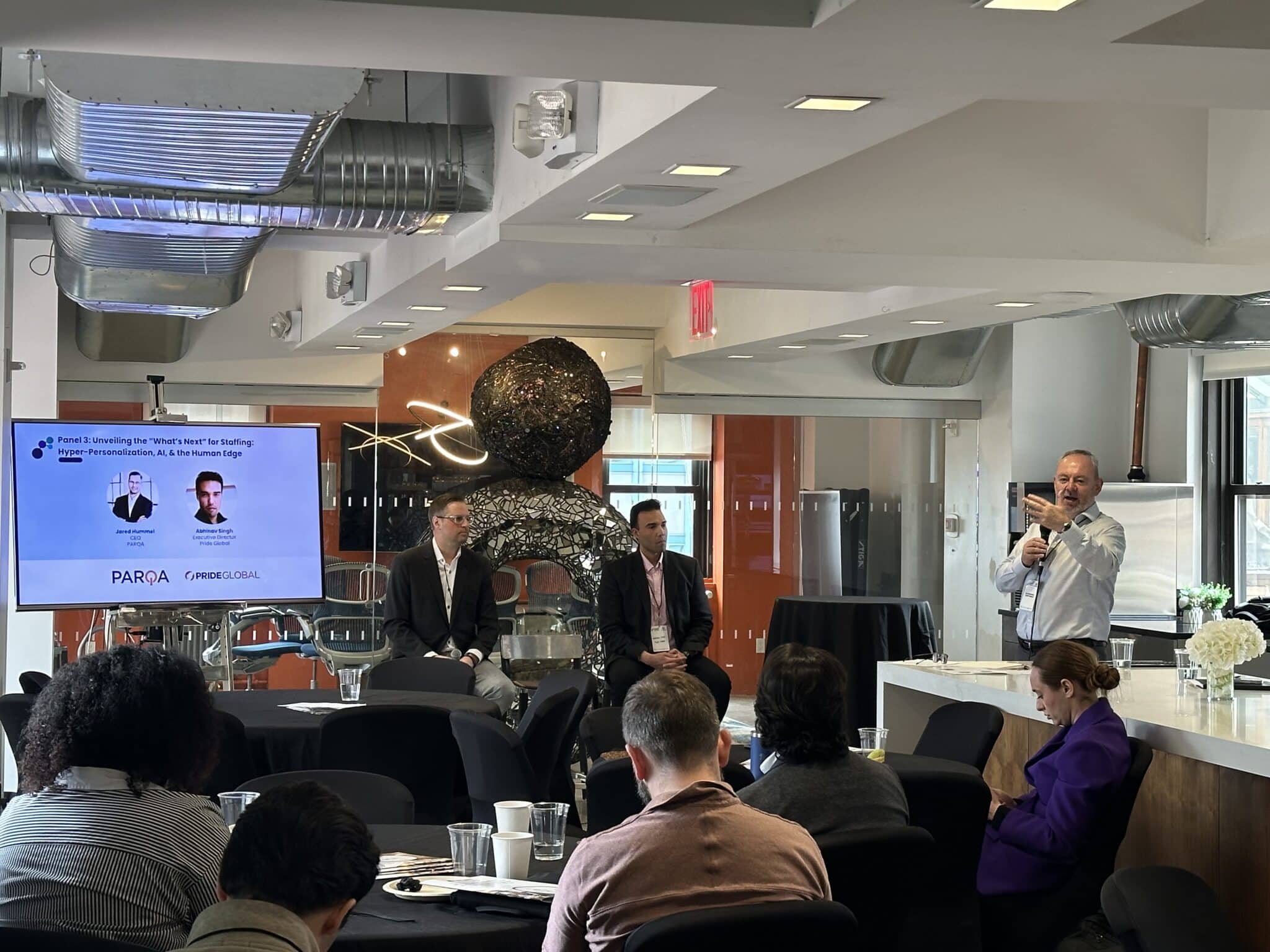Our staffing leaders’ workshop in New York last week brought together leaders from across the industry to continue to explore how AI is shaping the staffing world. Supported by our global partners Target Recruit and with a fantastic keynote from their CTO Chris Jordan, here’s what we found.
For those of you who think you’ve heard enough of AI already, I have news, we’re only just getting started!
One of the most interesting perspectives from our workshop was the recent IEEE survey of CTOs which predicts enhanced recruiting is likely to be the 5th most important use of AI (one behind automating customer service and one ahead of disease mapping and drug discovery!).

This is of course incredibly exciting but is also raises significant ethical concerns that demand careful consideration and implementation of appropriate guardrails. Here are a few of the key insights we explored:
- The Ethical Use of AI: Ethical considerations in AI-powered hiring revolve around maintaining fairness, transparency, and respect for individual privacy. While enhancing one’s LinkedIn profile or CV with AI tools may seem innocuous, there’s a fine line between optimization and deceit. Manipulating assessment questions or fabricating qualifications crosses ethical boundaries, compromising the integrity of the hiring process.
- Growth of Personalized AI: The evolution of AI in recruitment extends beyond conventional algorithms to personalized AI solutions. These systems adapt to individual preferences and behaviors, offering tailored experiences for candidates and recruiters alike. However, organizations must ensure that personalized AI remains ethical, respecting candidates’ autonomy and privacy.
- Managing Internal Innovation: As AI capabilities advance, there’s a risk of internal teams developing their own approaches without proper oversight. Establishing comprehensive ethical guidelines and regular audits, is essential to prevent the misuse of AI technologies and maintain alignment with organizational values.
- Integration into Employer Value Proposition (EVP): Demonstrating ethical AI practices can enhance an organization’s EVP, signalling a commitment to fairness, diversity, and inclusivity. By transparently communicating the ethical principles guiding their AI-driven hiring processes, companies can attract top talent aligned with their values.
- Balancing Quantity and Quality: While AI can streamline recruitment by processing large volumes of data, there’s a risk of prioritizing quantity over quality. Guarding against this requires continuous monitoring and refinement of AI algorithms to optimize for both efficiency and effectiveness.
- Ethics of AI-driven Sentiment Analysis: AI-driven sentiment analysis in hiring processes raises ethical concerns regarding privacy invasion and algorithmic biases. Organizations must tread carefully, ensuring that such analyses are conducted transparently, with full consent from candidates and employees, and that they do not reinforce discriminatory practices.
- Humanizing the Process: As candidates increasingly express discomfort with AI-generated approaches, organizations must emphasize their human touch. Providing clear avenues for direct communication with recruiters, offering personalized feedback, and showcasing the human faces behind the technology can reassure candidates of the organization’s commitment to their well-being and individuality.

In conclusion, while AI offers immense potential to revolutionize hiring processes, its ethical use requires careful navigation. By establishing clear guidelines, prioritizing transparency, and integrating human-centric approaches, organizations can harness the power of AI while upholding ethical standards and fostering trust with candidates. In this dynamic landscape, striking the right balance between innovation and humanity is paramount for sustainable and ethical recruitment practices.
Whilst this may all sound a bit esoteric, the real world implications for performance, profitability and reputation are all too real. This has a long way left to run!










